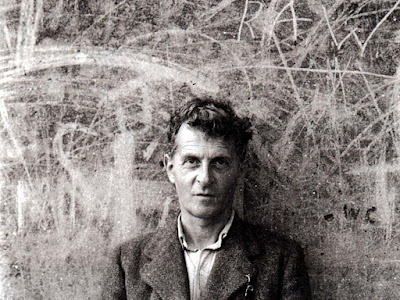April 27, 2014
It’s amazing how you can meet just one person and that individual can change your life forever. But at that time, I didn’t know how important Teddy was to me, in that he gave me a direction in life, that he wasn’t aware of. Actually he thought I was giving him some sort of direction. The truth is I think we were on an equal footing, with respect to our relationship. At one point, we even shared the same girlfriend. This you would think would have ended badly, but the pleasure that came out of that relationship was fantastic, and to this day, I love them both.

My friend Teddy gave me a collection of Iceberg Slim books to write an article on for a porn magazine called “Dirty.” He was one of the editors of the magazine, and it was either his sense of daring or maybe a sense of humor to hire me to write a ‘literary’ column for the smut magazine. I took this opportunity as if I was an alcoholic in a magnificent bar. If I did well on this piece, it was for sure I would find myself in a position to also take over the section of the magazine dealing with reviewing porn videos, which at the time, held a certain amount of fascination. For instance, I was intrigued not by the sex or even the women in the films, but more with the environment that these “actions” took place.

There is one series where the producer would take a woman to his bedroom for the purpose of shooting porn, and he interviews her regarding where she came from, is this her first time (always is), does she have a boyfriend and is he OK with this shoot (always is), and this discussion is exactly the same over and over again. Even the sex is exactly the same. The blow job, doggie style, missionary sex position, and then back to blow job, and then usually the doggie style. What I found kind of erotic was the mechanical approach to the filming that lead to the sex becoming almost machine-like. Here was a producer who didn’t want to mess with schedules or work procedures.
For about 12 months, I would go to Teddy’s office to pick up a slew of porn videos (VHS of course) and also I could write about the culture as I see it. I can’t imagine anyone buying Dirty magazine would have the slightest interest in my writings, but the whole experience was such an eye opener for me. Teddy had an interest in black American culture of the 1960s and 1970s. The Iceberg Slim books were at that time was published by Holloway House, a small press that was devoted and focused on black American literature. The odd thing about these books is that one could buy them in black neighborhoods, but rarely do they show up on the radar, for instance, if you go to your local chain bookstore outlet in Woodland Hills. But one could also buy these books at the newsstand on Cahuenga and Hollywood Boulevard. Reading them opened my eyes to a culture that I wasn’t fully aware of. Also, Iceberg, was a man out of his time, and even though my experiences in life are totally different than his, I feel we share that aspect where life is lived, yet we are not in our time.

Wittgenstein quoted Kleist “what the poet would most of all like to be able to do would be to convey thoughts by themselves without words.” We both agree that is an odd thing. Nevertheless when I read Iceberg I get the idea that his world exists as a snapshot of a specific time. But of course the issues are the same ones, but his approach to that era was seen as being old-fashioned or a tool of the system. Porn life is also restrictive, in that it has its own codes and rules. But there is also a sense of satisfaction to be in such a world.
My girlfriend at the time was only a fleeting moments of time, yet, a profound one at that. We still lived together after our affair was over, but Teddy moved in a month later. I knew he felt bad about it, but I never felt that he should feel guilty about it. These things happen, and also I wasn’t interested in her in that fashion. But again, what impresses me is the interior when I had my fling with her. The entire apartment was painted black, and had black thick curtains covering the windows. When I woke up, I wasn’t sure if it was daylight or nighttime. All I know is that I would bump into someone on the way to the kitchen or bathroom, and it was always Teddy. I appreciated those moments, as well as the opportunities he gave me for writing or exploring another world. In essence, he was one of the most influential men in my life.




















.jpg)
















